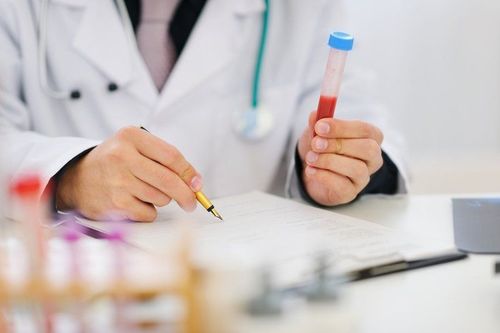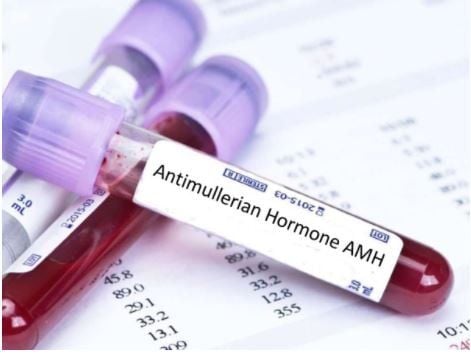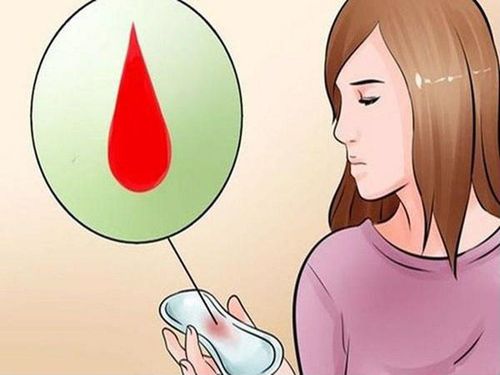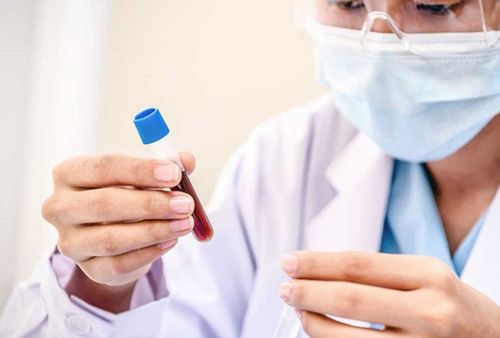This is an automatically translated article.
The article was professionally consulted by Specialist Doctor I Nguyen Thi Man - Department of Obstetrics and Gynecology - Vinmec Danang International General Hospital.This test plays a very important role in assessing fertility, especially in people with premature ovarian failure. So what does normal, low and high AMH mean?
1. What is the AMH test?
AMH (Anti-mullerian Hormone) is secreted directly by the granulosa cells of ovarian follicles and is directly related to the number of primordial follicles in the ovary. The AMH level indicates the number of immature follicles present in the ovary, also known as the ovarian reserve. Better ovarian reserve means higher fertility of the ovaries and vice versa.
AMH testing plays an important role in determining ovarian fertility, especially in patients with premature ovarian failure. The concentration of AMH will be constant, does not change with the menstrual cycle, so it can be done on any day of the menstrual cycle. This is the advantage of the AMH test over the previous FSH test. Therefore, making ovarian fertility testing becomes much more convenient for patients. Previously, tests to evaluate ovarian function (FSH, LH, E2) had to be performed at the beginning of the menstrual cycle (days 2-4).
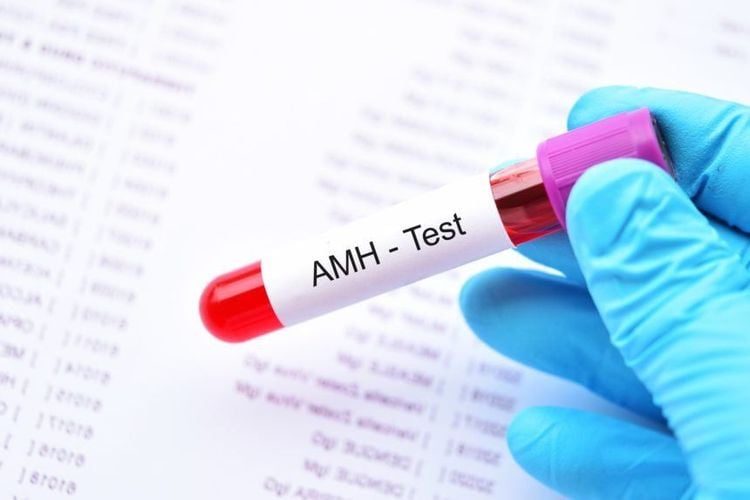
2. What do normal, low and high AMH numbers mean?
2.1 Normal AMH Levels AMH levels do not change significantly during the menstrual cycle and decrease with age. In healthy women and under 38 years of age, normal AMH levels range from 2.0 to 6.8 ng/ml (14.28 to 48.55 pmol/L). In addition, AMH levels higher than this value were also observed in women with polycystic ovary syndrome.
2.2 Low AMH Index A low AMH reading of about 1.0-1.5 ng/ml indicates storage capacity. of the ovaries is reduced, but there is still a chance of pregnancy. An AMH index < 1 ng/ml is considered low and the prognosis in most cases is very difficult. Because the eggs are few, and there is a high risk of not having a type I egg, the chances of conception are extremely rare.

Blood AMH levels > 6.8 ng/mL are common in patients with polycystic ovary syndrome and, if not treated appropriately, will also make it difficult for the patient to become pregnant. In addition, if you stimulate eggs with oral drugs such as Clomid, Clostilbegyt, Duinum, Serophene, Profertil, Ovuclon, Ovophene,... then too high AMH will easily lead to failure. As for the case of ovulatory stimulation with injectable drugs, when the AMH index is too high, it will be difficult to adjust the dose and easily cause ovarian hyperstimulation.
The AMH test is a fairly new test, but it plays a very important role in determining the fertility of the ovaries, especially before performing ovulation or in vitro fertilization. Understanding this index will help predict the likelihood of childbirth and promptly take appropriate treatment measures to increase the likelihood of pregnancy.
Specialist I Nguyen Thi Man is former Head of Obstetrics Department - Tam Tri Da Nang General Hospital, Head of IUI unit (Intrauterine Insemination) - Hoan My Hospital - Da Nang. The doctor has more than 10 years of experience in diagnosing, consulting and treating in the field of Obstetrics and Gynecology such as:
Infertility examination and consultation, implementation of assisted reproductive techniques such as: Ovulation monitoring, intrauterine insemination (IUI) Examination, ultrasound, screening and treatment of gynecological diseases Laparoscopic surgery for ovarian cysts, ectopic pregnancy
Please dial HOTLINE for more information or register for an appointment HERE. Download MyVinmec app to make appointments faster and to manage your bookings easily.





